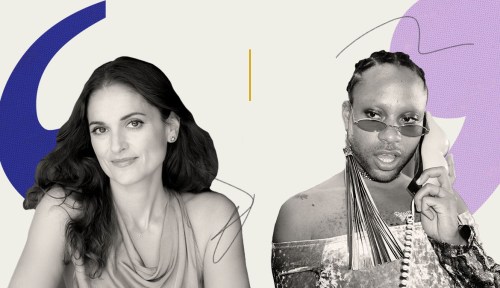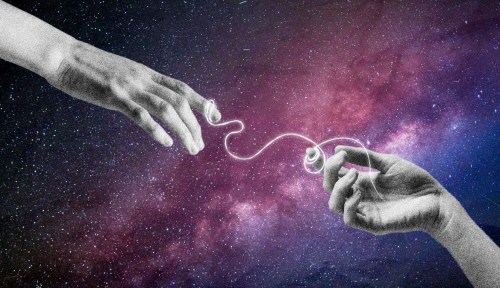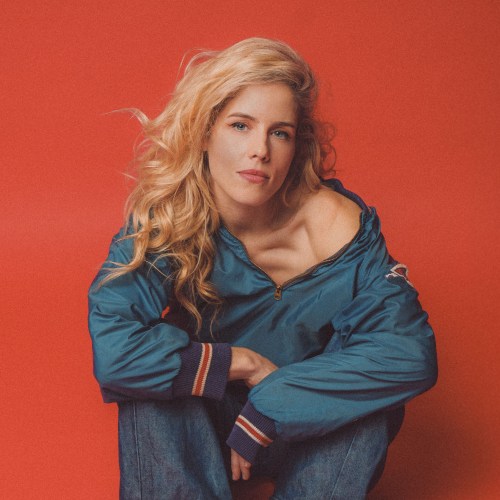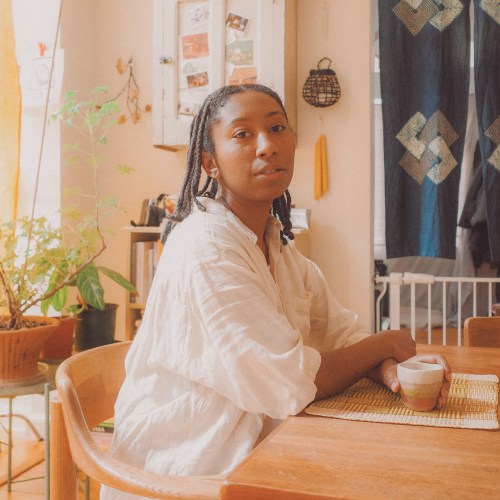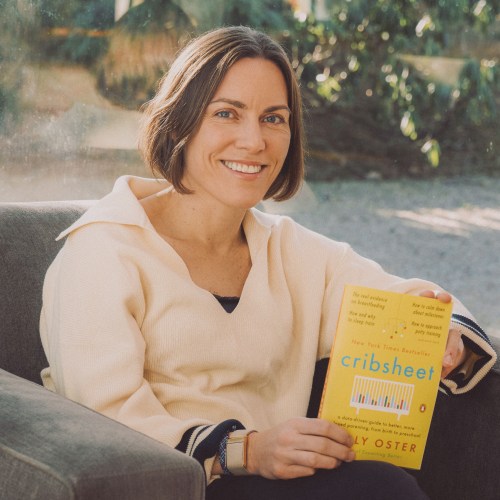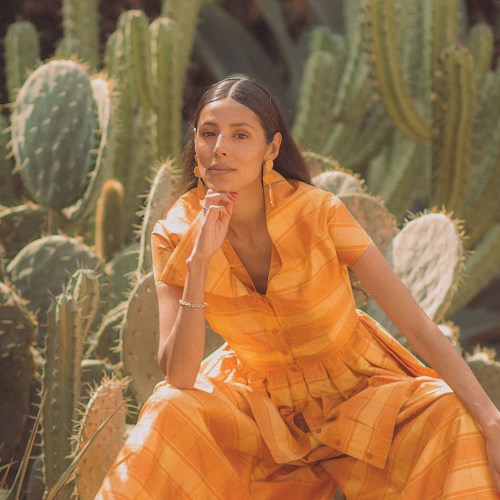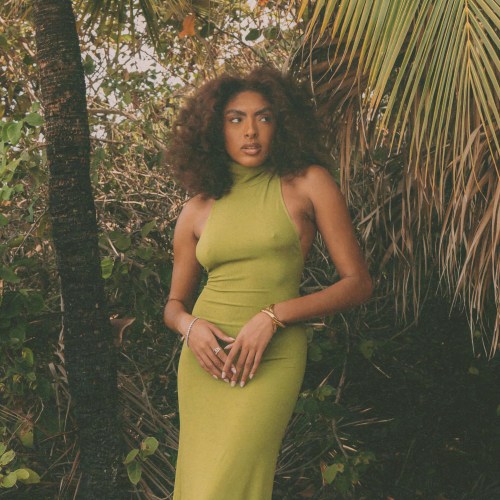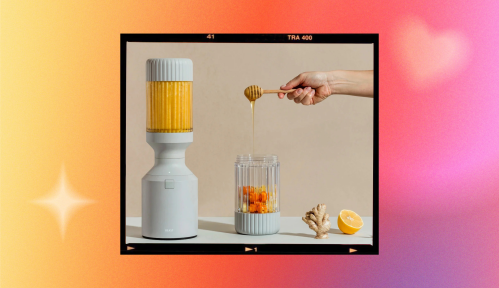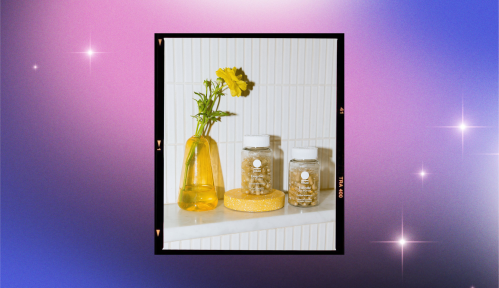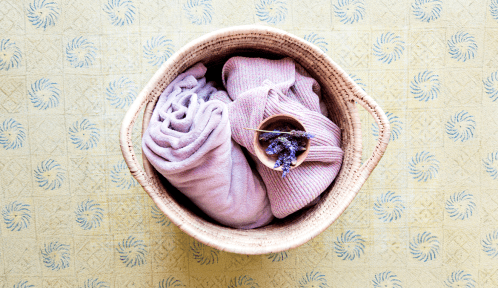Our editors independently select these products. Making a purchase through our links may earn Well+Good a commission
At the intersection of gender, sexuality, and spirituality, you’ll find people who spend their lives reveling in unanswerable questions along a process of self-realization, healing, and integration. I was thrilled to speak with one of them, Jordi—a multidimensional artist, healer, and guide, who expands and decolonizes gender in their life and work—as part of Well+Good’s Pride month program. Jordi identifies as non-binary, polyamorous, and pansexual. I identify as a cisgender lesbian, and I am also an astrologer, psychic medium, and the author of Modern Day Magic: 8 Simple Rules to Realize Your Power and Shape Your Life. We share a similar dedication to merging spirituality, sexuality, and activism.
I grew up in the Catholic Charismatic tradition and was a youth leader in my faith community. I realized I was a lesbian at an early age, and that awareness served as a gateway to spiritual discovery as I unpacked my beliefs about sin, sex, and gender. My self-acceptance, mental health, and, really, survival hinged upon my ability to develop a loving, compassionate relationship with the divine. I’ve explored Christianity, Buddhism, spiritualism, Wicca, esoteric traditions, and more along my spiritual path. I began my astrology and mediumship studies in the 1990s, around when I came out as a lesbian.
My sexual orientation and gender are integral components of my personhood, and my spirituality informs my service, politics, and contributions to the world. They are all inextricably linked. Knowing about Jordi’s work, I suspected our stories would overlap, and they did in surprising ways. Here’s our conversation.
Rachel Lang: As an astrologer, I like to start with this question: What are your sun, moon, and rising signs?
Jordi: My sun is Taurus, my moon is Scorpio, and my rising is Libra. I was born a day before the full moon. My mom and I share a Scorpio moon and Libra rising.
RL: I find patterns repeat themselves within families. I’m a Libra sun, Taurus rising, and Gemini moon. We’ve got that Libra-Taurus thing going on, and how perfect that we’re having this conversation on Venus’s day, Friday?
I was raised in the Catholic tradition, and one of the things that I struggled with in coming out was self-acceptance. Coming out was hard. Religious rhetoric about the “sinfulness of homosexuality” reinforced shame and internalized homophobia, and I lost relationships with some of the people I loved.
I turned to spirituality for healing, which meant loving and accepting myself and then forgiving the structural wrongdoing. I had to “come out” as a lesbian and as an astrologer. The core aspects of my life—whom I loved and what I did—were unacceptable to some of the most important people in my life. Fortunately, things have changed since then. What is your experience of queerness and how it relates to your spirituality?
J: That is very similar to me. I grew up in the Church. I spent multiple days a week at church, attending children’s services, and rehearsing for the hip-hop praise and worship team. The people I was close to at that time were all going to church. I wasn’t necessarily unaccepting myself as much as compartmentalizing my queerness. I was like, “Well, clearly it’s not accepted here in the environments where they’re celebrating people who ‘prayed the gay away.'”
I just knew it wasn’t safe environment for this aspect of who I am, so I explored myself behind closed doors and kept it a secret. But in the same breath, I was expanding into my queerness. So, it was a lot harder later in life to merge myself again. I didn’t have the space to do that until I left home.
I was in college, and I was finding God within myself and my ancestors, considering who they traditionally prayed to in the languages that were stolen or kidnapped from their native tongues. I was retracing my steps through the colonial violence of the Church.
As I was making my way, I was open to things in my lineage that have been suppressed: clairvoyance, clairaudience, talking to spirits, and vision and dream work. I come from a long line of magical people who have had to suppress that because it was seen as demonic. It was at that time that a lot of my identities came to a head, and it wasn’t even just sexuality at that point; it was gender as well.
RL: We can’t separate our sexuality or gender from our spirituality. It’s how we experience our soul in our body and feel connected to the whole. I think the colonial mindset perpetuated the idea that magic, ritual, and the expression of spirituality we’re talking about are evil. That mindset has done so much damage.
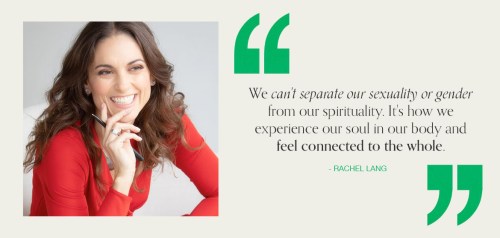
In researching the witch trials of the early modern period and the relationship between power, gender, and magic, I learned colonization was a factor in spreading fear about supernatural power and magic. I can still see remnants of it today in the way many people fear witchcraft, for example.
I would love to hear some of your thoughts about what it was like for you to reclaim the spiritual practices of your ancestors.
J: It’s so interesting that you bring up the witch trials, because I always go back to that as a teaching point of disconnecting whole generations and cultures from their roots. We’re also talking about disconnecting from the land through gender-based violence.
It was a lot of protesting that activated me. In 2016, I saw livestreams online of murders and executions; it was rendering me helpless in bed, watching them. It was so surreal to witness death in that way. At the time, somebody invited me to a BLM rally. We were surrounding the families of victims of police violence. I had to bring healing, love, and prayers. So, I was praying in public with my hands up.
There were thousands of people in the street saying the names of the dead up to the heavens. I remember looking at the sky, and there was a quarter moon between Mars and Jupiter. The sun was setting, and they all made a circle. We never turned our back to that alignment, and I had to keep my hands up and pray.
After that, I was thrust into an awareness. I’ve been reinforming my identity through retracing the steps of history, and that took place as a racial conversation. But I also feel the complexities of race, gender, and sexuality as part of my identity. Everything’s connected.
RL: My spirituality has always informed my dedication to justice. The more I decolonized my spirituality, the more motivated I became to participate in movements to promote equity and liberation. In 2016, many people woke up to the injustices that pervaded our culture. Some movements merged spirituality and witchcraft, specifically, with activism. I was at some of those rallies and in those movements. You said 2016 was a significant turning point for you. How have spirituality and activism intersected for you since that time?
J: Spiritual warfare is real. We were holding hands in a circle in the street, and the amount of violence that was met for something so sacred showed me the power of a gathering like a ritual.
RL: Now that more people are owning their gifts and evolving their spiritual beliefs, I’m hoping these shifts can lead to the world’s healing. We’re healing not just our trauma and those we’ve inherited from our ancestors but also the collective trauma we’ve experienced in recent years.
I’m going to shift gears a little and talk about Neptune. Since 2012, Neptune has been in Pisces, and Neptune relates to larger cultural movements. The last time Neptune was in Pisces in the 1800s, we saw a similar interest in mediumship, magic, and occult sciences as we do today. It’s a time when we can all use our collective imagination to shape the world. So, put on your envisioning or psychic hat: What kinds of movements might happen in these next few years?
J: I see a lot of spiritual leveling up, especially with this pandemic. With all the people leaving the planet, we’re gaining angels. There’s more connection to spirituality and communication with spirits. It’s interesting—a spirituality informed by a lot of death and trauma. I think this time is informing and shifting the nature of people regarding spirituality and spiritual connection.
RL: I think as we have these shifts, we will become more intolerant of the abuses of power that contribute to inequality and exclusion. I’d love to see us be in ritual with one another, holding a vision for the world we want to create.
J: For me, I feel an urgency. Violence and pain have traditionally been the reactants, and it doesn’t have to be that way. So, I want us to stretch the muscles allowing abundance to be the core of how we share and connect—allowing love to be the core.
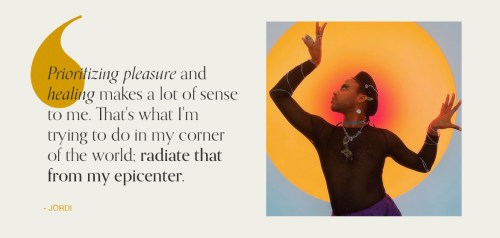
The planet’s going through a lot of changes right now, and so are we. Prioritizing pleasure and healing makes a lot of sense to me. That’s what I’m trying to do in my corner of the world; radiate that from my epicenter.
RL: I’ve been exploring how pleasure relates to power for a new book project. As a lesbian, pleasure and shame go hand in hand. Part of my spiritual practice recently has been grounding in my body and feeling my senses. Loving what it feels like to be in a body on this Earth. I love that you spoke about pleasure. What are some things you do to nurture that part of yourself?
J: I enjoy taking baths every week; I got this massage wand…I also got a new vibrator. The pandemic was the first time I ever lived alone, and now I’m thrust back into living in shared spaces. I navigate autonomous healing in a collective space where everybody might not be on the same page by prioritizing myself and time with myself. That means going on walks. It is a special part of my self care.
RL: I hear you. I’m married to my wonderful wife, Tisha, and I think the pandemic put a lot of pressure on everybody, regardless of relationship status. Time alone was so important because we were right there in close proximity all the time. We both work from home.
It was art for me. I needed to ground myself in beauty and creativity to process the dynamic energy of what was happening in the world, and so I made that a part of my spiritual practice.
I realize we didn’t talk about relationships. That’s so me—talking about work, activism, and everything else but relationships. Are you in a relationship?
J: That’s real! I’m such a lover, it’s ridiculous, but I do not have a lot of activation in my romantic life. The pandemic initiated the end of my first and longest relationship. I thought moving into a house on my own in New Orleans would allow for more freedom and excitement in that area, but the only way I was meeting people with the intention of romance was through dating apps/social media apps, which come with their own special set of challenges. So, when things felt a little out of my control physically with regards to solidifying dates or long-term potential lovers, I prioritized ceremony. Burning candles, talking to the moon and my ancestors about it, and journaling were helping me navigate romantic longing.
I feel quite depleted in the ways I’ve been manifesting. So, I’m single and very recently trying new things, like releasing control, trying to limit the amount of time I talk about romantic lack, or reading about love. I asked a friend of mine about how they would attract lovers or align with them, and they said to just do what I love. The more I find myself in environments I am happy to be in, the more people who are interested in that same energy will find me. I wish it were a little bit easier from what I’ve seen others able to do romantically on this planet, but I’m a very different person. So, I know my loverships will be just as different.
RL: Manifesting love is complex because two people are involved in the manifestation, and more people are involved if you count potential children or family.
I resisted love for so long, but I did this exercise when I was ready to be in a relationship. I’d write love poems and letters to my future wife in a journal. I didn’t know who she was, but I could feel what it was like to be in love. I did this almost every night for a year.
Tisha and I had known each other as friends for a long time. I didn’t know she was the one until I was ready to see her as the one. It happened on November 14, 2016—the Taurus full moon. My manifestation process was all about being in love as if she were there, but she was also doing her part to manifest love at the same time. When we were both ready, it happened effortlessly.
I can be a romantic. Just talking about it now, I’m feeling the love. When they say love is love, I feel it in my core. Loving women felt so pure and natural to me. I couldn’t see how it could be considered wrong, especially because it required so much of my heart—my courage—to come out.
How has being on a spiritual path and developing your gifts shaped your experience of love?
J: It has deepened my relationship with love. I feel like I am able to feel more of every emotion and empathize more than I ever have with the people, places, and beings I love. In that same breath, I think love has become more intense for me. Even just in processing spaces or experiences in which love is not present or not being expressed. I think from what I’ve been learning from life, especially recently, is my strong desire for communication in love, about love, with love. I’ve written about love a lot more. I’ve shared with more people that I love them. I usually don’t think of myself as a bold person, but I am. And the more I am truthful with myself and my emotions, the more expressions of love I’ve been able to share with others.
Want more Love Out Loud conversations? Here, Claire Wasserman and Ashley Louise discuss (and celebrate) their marriage. And here, Hannah Schneider and Jaclyn Moore discuss queer representation in media.
Sign Up for Our Daily Newsletter
Get all the latest in wellness, trends, food, fitness, beauty, and more delivered right to your inbox.
Got it, you've been added to our email list.
